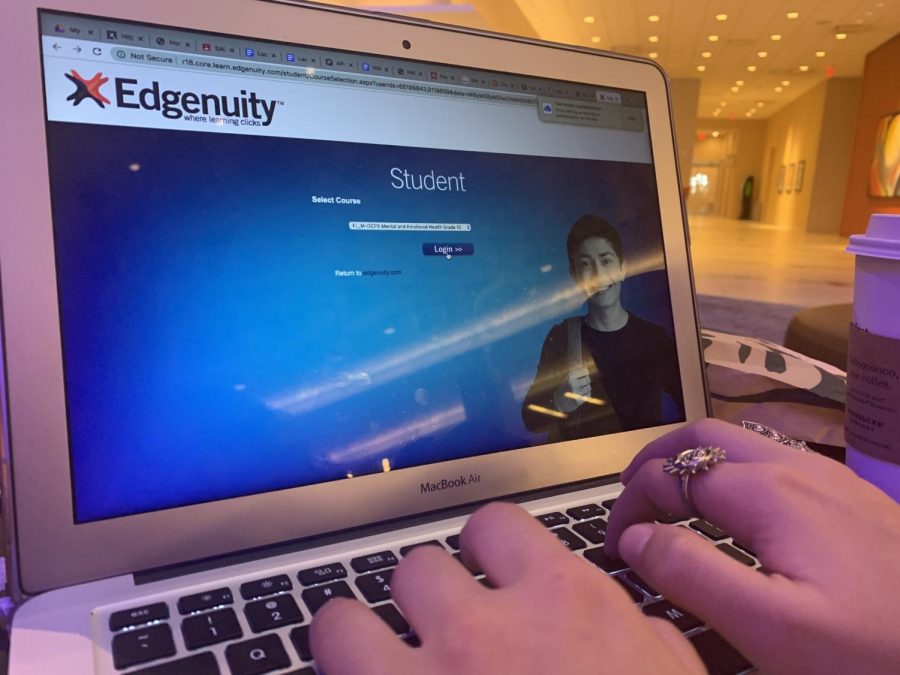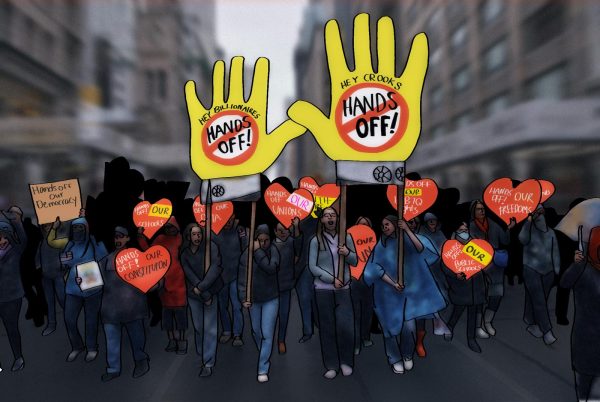Mental Health Crisis Solved by Edgenuity!
A student begins their Edgenuity assignment as they log in through the student portal.
Thank you, Florida Department of Education! Because of your five hour Edgenuity course, I am completely devoid of all mental health issues. I’ve never felt better then when I play my videos with the volume down, wondering to myself why I have to do this. The state of Florida is not getting to the root of the issues with the crippling mental health issues of many students, failing to consider the effects of standardized testing, extreme academic competition and hours of homework every night, all pressures dictated by the state itself. This newly implemented “solution” is ineffective because it takes away from necessary class time often dedicated to already difficult classes and it unintentionally stigmatizes mental health. Of course, a valid solution is not always the easiest one—but it is pertinent that the government attempts to actually solve the issues rather than put up a front to eliminate their liability.
One main issue that both educators and students alike have recognized is that this program has made its appearance in the middle of the test-prepping season—for both Advanced Placement tests and standardized exams like the Florida Standards Assessments. The timing for this seminar has completely disrupted the lesson plans for many teachers, especially those with block schedules. This is because the minimum five hours needed to complete the program has to be split up into multiple classes, depending on the schedule of the school. As a result of the constrained time frame and the mountains of work looming ominously in the back of their minds, many students cannot take the important messages being portrayed in these videos seriously. It is nearly impossible for students to be able to focus on such a seemingly arbitrary program relative to the work for a class that could determine one’s future with the credits it can allocate.
Although some might argue that there are good intentions behind this movement, the state has not gone far enough in developing a solution for the massive crisis that our nation is facing as a whole. With this movement, the government is simply dipping their toes in a kiddie pool of issues that students face to eliminate their own liability, now being able to say that the students were “educated” on mental health concerns (often caused by being overworked in school) so any issues are out of their hands. In the videos, it is often mentioned to reach out for help if you are in crisis, but by putting the videos in place rather than having actual counselors available, these issues develop a stigma and are normalized in an unhealthy way. Guidance counselors in many schools have so much on their plates that students do not feel comfortable interrupting their busy schedules, so they are not able to get personalized advice that could seriously impact their mental state.
“I feel like Edgenuity would be more efficient if instead students had in-person access to professional counselors for seminars during class discussing what the Edgenuity assignments did,” sophomore Abigail Felan said.
All things considered, the state of Florida did make an effort to help the students’ mental health, which is more than many states can claim. However, this stride was not enough to effectively help students. While addressing issues critical to the student body, these videos do not develop necessary dialogue between students and mental health professionals. A much more effective solution, although harder logistically, would be to have a school counselor or psychologist specifically designated to speak to students every school day. This would help nip a plethora of student-inflicted crises in the bud and even potentially minimize violence in schools.
Your donation will support the student journalists of Coral Gables Senior High School. Your contribution will help us cover our annual website hosting costs.

Maïa Berthier is a senior in the International Baccalaureate program at Coral Gables Senior High. This is her fourth year in CavsConnect and second year...







